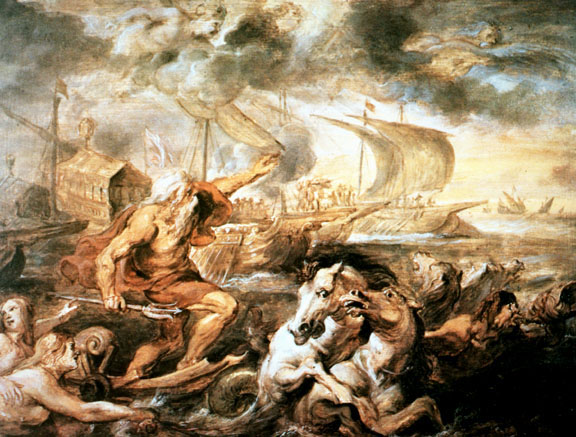Friday
My faculty discussion group, having finished Dante’s Divine Comedy, has moved on to another monumental work, this one by the man who guides the character Dante through Inferno and Purgatory. In other words, we’re tackling Virgil’s Aeneid.
We don’t normally talk politics in our group, but our minds couldn’t help but turn to the January 6 insurrection when we got to the scene where the goddess Juno stirs up the winds to harass Aeneas’s fleet. At this point Neptune, angry at how another god has invaded his domain, does what Donald Trump chose not to do. He intervenes to end the chaos:
Neptune himself raises them [the Trojan ships] with his trident,
parts the vast quicksand, tempers the flood,
and glides on weightless wheels, over the tops of the waves.
As often, when rebellion breaks out in a great nation,
and the common rabble rage with passion, and soon stones
and fiery torches fly (frenzy supplying weapons),
if they then see a man of great virtue, and weighty service,
they are silent, and stand there listening attentively:
he sways their passions with his words and soothes their hearts:
so all the uproar of the ocean died, as soon as their father,
gazing over the water, carried through the clear sky, wheeled
his horses, and gave them their head, flying behind in his chariot.
Virgil himself is being political in his epic simile since his reference is undoubtedly to his patron, Augustus Caesar.
Trump, on the other hand, has never been described as “a man of great virtue and weighty service.” There’s not much soothing of hearts in his repertoire. On his watch and at his instigation, stones and fiery torches flew.


